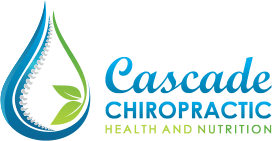Most of us love summer for its hot days and warm nights! Some love summer for the time spent outside hiking, boating, playing sports, or simply hanging out by the pool or creek. Planting a garden, working on house projects and going on vacation are all more fun when you can do it in the sunshine versus cold, windy weather, don’t you agree?
So while there are many benefits to summer sun, there are also several reasons why we should practice caution while enjoying the rays!
Benefits:
1. Immune System
We get to make our own Vitamin D when we are in the sun without sunscreen. Vitamin D is a very important part of our immune health, and its free if you get out in the sun 20-30 minutes a day.
2. Mood
Sunlight is thought to increase the brain’s release of serotonin. Serotonin is associated with mood upregulation, assisting in feelings of calm and focus. Low levels of serotonin have been associated with a higher risk of what used to be called SAD or Seasonal Affective Disorder, (a type of depression associated with the change of seasons). I encourage my patients with feelings of sadness to go outside on a daily basis to get some sun when possible!
3. Bones
Exposure to the UVB or ultraviolet-B rays of the sun also improves bone density due to vitamin D production. So if you would like to reduce your risk of osteopenia or osteoporosis, include some sun worshiping on a regular basis, even if it is in your own backyard in a swimsuit!
4. Skin
Some skin conditions have been shown to improve with the use of light therapy, ask your dermatologist if it is right for you.
Cautions:
1. Sun Burns
Burning of the skin can be a danger and should be avoided. When you need to, cover up, get in the shade or go inside to avoid sunburn. Coconut oil and shea butter have been touted as homemade sunscreen ingredients and may provide some protection from UV rays.
2. Eye Damage
Long term exposure to UVB rays can damage the retina of the eye, can cause cloudy bumps along the edge of the cornea and can be a factor in the development of cataracts. Use proper eye protection or a hat when spending any length of time in the sun to minimize these adverse effects.
3. Dehydration
Dehydration or heat exhaustion is another condition that needs to be paid attention to for those working in the heat. Mineral and water balance can be disrupted as a result of excessive sweating. I often recommend a ½ ounce of water per pound of body weight with a pinch of sea salt for those working in the heat. So if you weigh 200 pounds, you would drink 100 ounces of water. Heat stroke is an advanced condition of heat exhaustion and can be accompanied by an increase in body temperature, confusion, loss of consciousness, hot dry skin, or profuse sweating, and seizures. Dehydration can also lead to heat rash. This occurs when sweat ducts do not allow the body to sweat. Get out of the sun and improve hydration if this happens, it usually clears itself.
4. Wrinkles
Wrinkles and aging are also a common issue for abusive exposure to the sun. So users beware! Moderation is best for minimizing your risk of wrinkles and aging. Nourishing the skin with healthy oils and fats can improve the health of your skin also.
Other Concerns: Chemical Toxicity
While healthy chemical free sunscreen can be a necessity for some, recent research has shown that most sunscreen has been found to contribute to chemical toxicity. “As little as a single application of some sunscreens have been found to increase the levels of these toxic chemicals beyond the FDA’s threshold for safe use.” These chemicals can lead to hormone disruption, fertility issues, and perhaps cancer.
In general I would say that sunshine is super important. One thing I do is increase my calcium and good fats (I use Cataplex F) if I am going to be out in the sun all day. It improves the transfer of calcium to the tissues to reduce the risk of sunburn and heat exhaustion. This can also help with those nasty cold sores/fever blisters that some people get when in the sun. This mechanism has to do with the body’s production of Vitamin D and the resulting calcium mobilization from tissues to the blood, the decrease in tissue calcium can cause the above symptoms.
So that is the good, the bad, and the ugly of sunshine! Get out there and enjoy!

